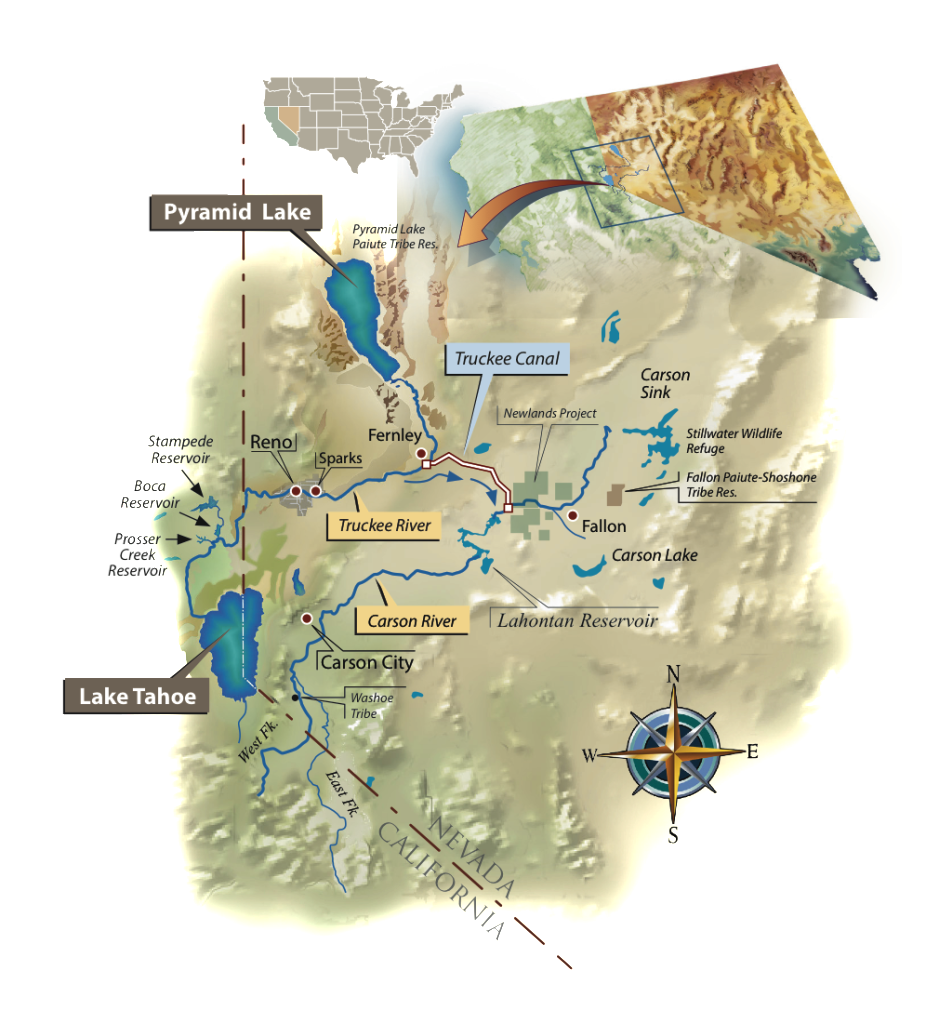Project Overview
Water for the Seasons (WftS) is a program that partners scientists with community water managers and water right holders in the Truckee-Carson River System (TCRS), to explore new strategies and solutions for dealing with extreme climate events such as droughts and floods.
This four year study is funded by the National Science Foundation and the U.S. Department of Agriculture, and uses the TCRS in a pilot study to learn how to best link science with decision-making in snow-fed arid-land river systems. By working collaboratively with stakeholders, WftS aims to create a model for improving community climate resiliency, or ability to adapt to extreme climatic conditions.
Where we work
The TCRS originates in the Sierra Nevada, and relies on winter snowpack and spring runoff as the primary sources of water (see map, below). The TCRS provides water for municipalities, agriculture, industry, recreation, tourism, fisheries and wildlife habitat.

In snow-fed arid-land river systems such as the TCRS, the duration and timing of storms and runoff are critical factors that determine quality of life, making these communities particularly vulnerable to complex and unexpected drought and flood events.
The TCRS was selected for this pilot study because it is a prime example of a snow-fed arid-land river system, which within a relatively small geographic area encompasses many of the major water management challenges common to communities in the American West.
What is Climate Resiliency?
Climate related extremes such as heat waves, floods, droughts and wildfires impact natural ecosystems, threaten food and water supplies, and put human lives and infrastructure at risk. In the Southwestern United States, climate change has already been linked to heat waves, drought and wildfires. Predictions for the future include declining water supplies, reduced agricultural yields, human health impacts and changes to snowpack
A climate resilient community is one that has developed the capacity to adapt or respond effectively to change in the face of extreme climate events. Its stakeholders understand, acknowledge, anticipate and absorb extreme climate events, and possess the capacity to reorganize as necessary to maintain essential community functions and identity.
Project Goals
WftS will create a framework for engaging diverse stakeholder communities in the effort to improve water sustainability and climate resiliency in the TCRS. WftS does not aim to resolve historical water allocation disputes, but to enhance knowledge for water managers and water right holders to adapt to a changing climate.
The result will be an integrated suite of models that can be used for planning purposes by water managers, agricultural producers and municipalities in snow-fed arid land systems around the world.
Goals of WftS are:
- Use stakeholder knowledge to define extreme climate scenarios that impact water supply and demand.
- Model water supply and demand outcomes that result from these climate scenarios.
- Integrate human decision-making with hydroclimatic models to understand water sustainability and climate resiliency.
- Assess the transferability of the TCRS models to snow-fed arid land systems globally.
For information on modeling, continue to Collaborative Modeling.
For information on the project team, continue to Project Team.





